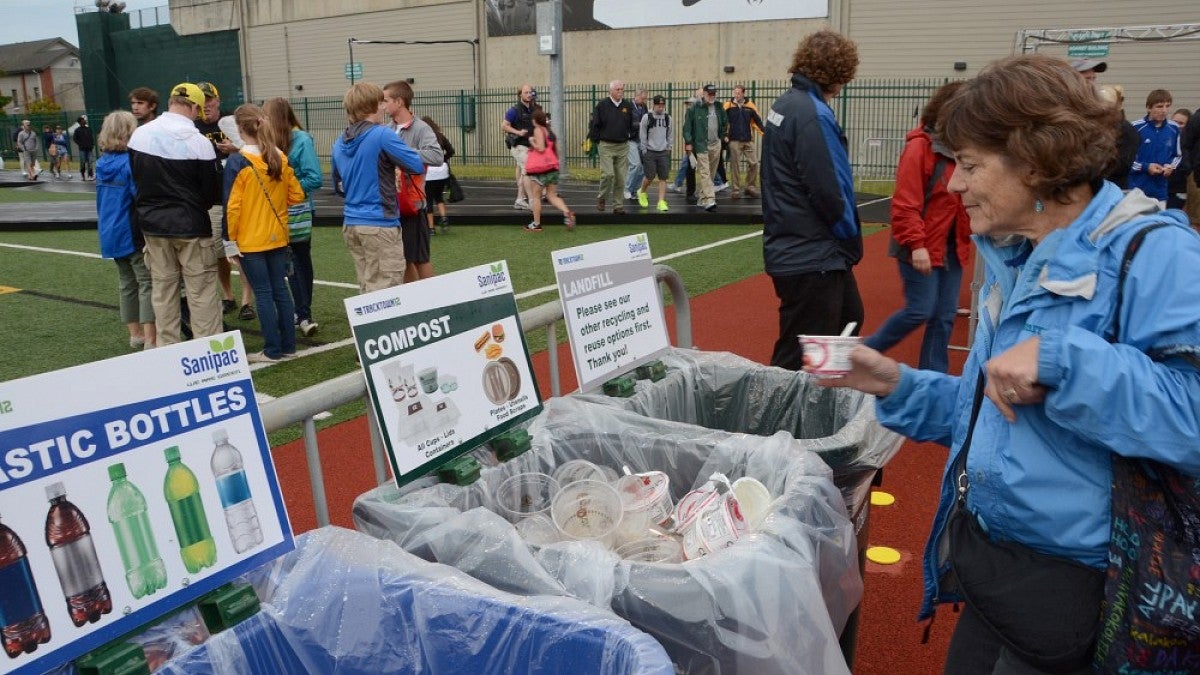The UO continues to rack up green accolades that reinforce its deep history, culture and leadership in sustainability and environmental programs and initiatives.
In one of the most recent examples, a team of landscape architecture students took first place in a global design challenge with a project to improve the food system using a model based on the digestive track of earthworms. And earlier this month the Oregon MBA program was recognized by Princeton Review as the Best Green MBA in the country.
"A focus on sustainability runs through the heart of everything we do, so it is particularly rewarding and an honor for the Oregon MBA program to be recognized by the Princeton Review as the top green program in the country," said James Terborg, interim dean of the UO Lundquist College of Business.
"At the University of Oregon, sustainability is in our DNA,” he said. “We’ve been teaching and practicing sustainable business for many years, creating the next generation of trailblazers who take a global approach and believe that business should and can make the world better."
The Oregon MBA joins a number of UO academic programs that are national leaders in sustainability. Architecture was named the top program in sustainable design and practice by Design Intelligence this year. The Sustainable Cities Initiative is an innovative model that uses the UO’s service-learning mission to create a cross-disciplinary focus to promote education, public outreach and research on design and development to solve community sustainability issues.
When it was established in 1998, the UO’s green chemistry program became the model and national leader in developing creative ways to minimize and reduce the human and environmental impact of toxic chemicals traditionally used in the field.
The Environmental and Natural Resources Law Center was one of the first of its kind in the country. It created the first environmental law clinic in the U.S. and hosts one of the largest public interest environmental law conferences in the world.
“The UO has historically been made up of early adopters and pioneers when it comes to environmental issues,” said Steve Mital, director of the Office of Sustainability. “Before sustainability was a buzzword, the students, faculty and staff were taking the banner of green and running to explore, test and expand it.”
UO’s green culture goes beyond academics. The university is nationally recognized as a leader in college campus recycling, thanks to a grassroots effort started by students in the late 1980s.
Now called the Campus Zero Waste Program, it has expanded to include reuse, waste reduction, composting and zero-waste events. There are more than a dozen environment-oriented student clubs on campus.
And the UO continues to innovate. This fall it is working with a regional nonprofit and local installers to offer a discount to UO faculty and staff members on the installation of home solar panels to generate electricity.
From lowering carbon emissions — through bus passes, bike programs and carpool incentives — to being the birthplace of environmental advocacy organizations like Oregon Wild, the UO continues be a national leader when it comes to sustainability and environmental issues.
“We have scores of distinctive and distinguished sustainability initiatives across operations, academics and the co-curriculum,” Mital said. “The people behind these programs created an institutional identity that is now recognized around the country.”
—By Heidi Hiaasen, Public Affairs Communications


